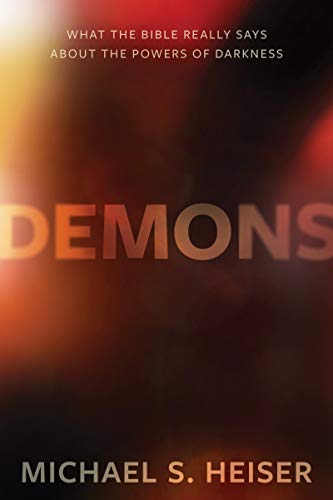BEN: So let’s reflect for a moment on the 3 rebellions you are analyzing in this book. If I am understanding you rightly, in each case the rebellions are acts of angelic beings who, before the act of rebellion, are simply good angels or supernatural beings, a part of the heavenly council. But then, one after another, they seize the opportunity or self-aggrandizement and rebel, first in the garden of Eden, then before the flood, then in association with the tower of Babel event, after God had assigned these previously good supernatural beings the roles of governing justly the non-Israelite nations. Why, exactly, did they all go wrong? Is this an example of ‘all power corrupts, and ultimate power corrupts ultimately? Are we to think that while they were created good by God, because they were also created with a limited amount of freedom of choice, that freedom went to their heads and rebellion resulted? It would seem you are saying that inexplicably they all went South on their own, and we are no closer to understanding why, or what the real source of such evil is. Shall we follow Pascal and say it is a matter of ‘the heart turned in upon itself’ the primal sin being narcissism? Help us understand why these rebellions happened.
MICHAEL: Anything we say here is speculative given the absence of biblical data. So with that caveat, I’ll add some speculation to Pascal, confessing I’ve been influenced in places by Second Temple material (which of course is also speculative) and some biblical passages that could suggest certain ideas. I think Pascal’s trajectory is on the table. The desire for autonomy of the sort that yearns to be free from authority, seems to be a pattern. That’s more of a sad eventuality than a surprise. Given that all created beings (supernatural and human) are lesser than the Creator, those created beings, even those made as his imagers, by definition lack his perfections, including his own perfect nature. The combination of a less than perfect nature with freedom and other shared attributes distributed by God to his imagers so they can perform the imaging responsibility will inevitably lead to failure. Of the three rebellions, the one where this is seen most readily is what happens in Eden. It is interesting in this regard that Scripture makes specific the point that humanity is lower/lesser than (the) elohim. I don’t think we’re given that information to round out our firm grasp on the obvious. Psalm 8 drops that nugget amid creation imagery and then asks why God should be mindful of humans and make them partners in the rulership of creation. The implied thought is, of course, “instead of the other elohim, who are superior.” Second Temple texts like the Life of Adam and Eve (chs 13-14) pick up on this and see resistance, hubris, and bitterness in the original rebel, who refuses to worship the human creatures at Michael’s command. If Isaiah 14 and Ezek 28 have a rebellion in council as part of their backdrop, then hubris on the part of the rebel is inescapable. This idea is less apparent in Genesis 6, but if (as it seems) the perpetrators should have been able to anticipate God’s reaction to their transgression, than hubris is once again hard to eliminate from that equation. If it’s not ignorance and was deliberate, what else could you call it? As I note in the Demons book, at least one Second Temple writer thought the transgression included the element of supernatural beings making their own imagers. I don’t think we can read this as innocent toddlers making like daddy. If the “angelic realm” doesn’t require procreative behavior (and Jesus presumed as much), then wanting to raise up one’s own people or imagers as it were is to presume the right-ness of moving past a boundary, transgressing one’s “rightful estate” to use KJV language. Again, if it’s not accidental, what would you call it? It’s further easy to speculate that, given the statement in Psalm 8 about the lowly estate of humanity and the irony of God’s commitment to them (ongoing as it is, now past the debacle of Eden and the proclivity of human depravity), the third rebellion could be as much a case as supernatural beings giving humans a taste of the chaos they deserve or just failure due to imperfection, or both. Why should we administer these embodied failures justly? They deserve misery. And if it’s giving humans what they deserve, it’s also supernatural beings taking / receiving the worship they presume they deserve—idolatry is, after all, connected to the “Babel situation” in the biblical storyline. But while it’s easy to imagine these trajectories and develop them, they are primarily speculative.













